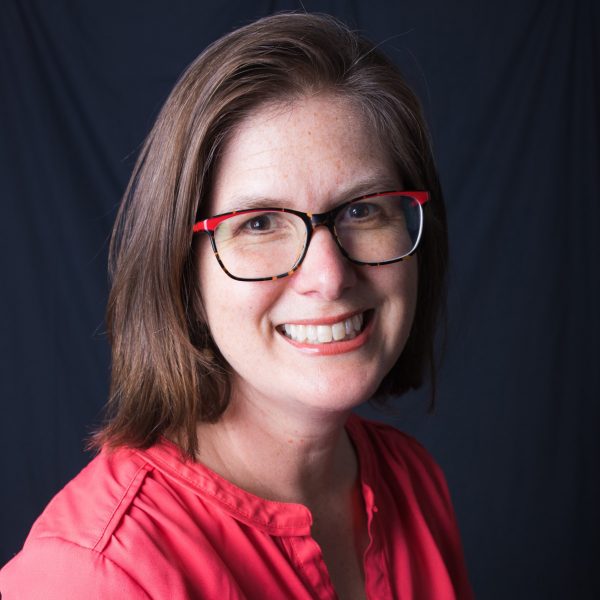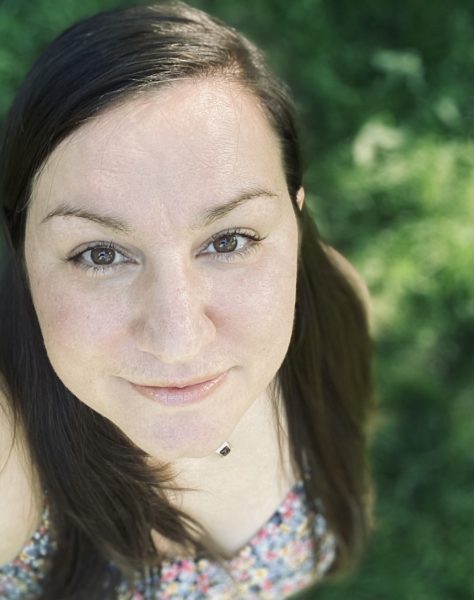In Conversation with Emily Pérez
By Karen Sherk Chio
 Poet Emily Pérez is the author of the collections What Flies Want (University of Iowa Press, May 2022), winner of the Iowa Prize, and House of Sugar, House of Stone (Center for Literary Publishing, 2016) as well as co-editor of The Long Devotion: Poets Writing Motherhood (University of Georgia Press, 2022). She is also author of two chapbooks, Made and Unmade (Madhouse Press, 2019) and Backyard Migration Route (Finishing Line Press, 2011). In addition to being a writer, Pérez is a high school teacher, a grade level dean, and a mother of two sons. On October 2, 2022, Karen Sherk Chio spoke with her over Zoom from her home in Colorado.
Poet Emily Pérez is the author of the collections What Flies Want (University of Iowa Press, May 2022), winner of the Iowa Prize, and House of Sugar, House of Stone (Center for Literary Publishing, 2016) as well as co-editor of The Long Devotion: Poets Writing Motherhood (University of Georgia Press, 2022). She is also author of two chapbooks, Made and Unmade (Madhouse Press, 2019) and Backyard Migration Route (Finishing Line Press, 2011). In addition to being a writer, Pérez is a high school teacher, a grade level dean, and a mother of two sons. On October 2, 2022, Karen Sherk Chio spoke with her over Zoom from her home in Colorado.
Karen Sherk Chio: What Flies Want seems to address the concerns of parenthood head on—parenting boys, fear of school shootings, challenges in maintaining a marriage, and mental health, among other themes—while House of Sugar, House of Stone contextualizes some of these fears and challenges in fairy tales. Do you see this evolution, and if so, what has influenced the way you are addressing these themes in your work?
Emily Pérez: I definitely see the evolution. Both books use “I,” but House of Sugar, House of Stone most frequently uses “I” in a persona, and not “I,” as in “I, the mother.” I actually wrote some of the House of Sugar, House of Stone poems before I was even a mother. It started with a project looking at my own childhood and trying to make sense of it.
As I became a parent, I became much more sympathetic to some fairy-tale parents—the awful, abandoning parents! Writing in persona is a protective move; it’s a way to tell a story without ever having to map it onto something specific. The specifics come from the received story and not from the lived story. Writing in persona was a way of writing about things that scared me without having to put them on myself directly.
There are a few fairy-tale poems in What Flies Want, but I was mostly done using fairy tales as a an over- and underlay. Moving away from persona poems meant that I was writing in a much more direct way. It was a byproduct of the concerns that I write about: parenting boys, violence, white supremacy culture, and school shootings. Readers can more explicitly connect to these topics if they’re happening in a present-tense way, and not in an indirect way.
KSC: Yes, I’m glad you brought up how What Flies Want grapples with identity, especially in a patriarchal and white supremacy culture. How do you approach writing about such challenging themes?
EP: I’ve always written from a place of strong feeling, and so often, for me, that’s fear. These themes are the things I am living with and afraid of, especially in raising white male children. I’m wondering: What am I doing to work against these forces, in what ways am I enabling, in what ways am I complicit? I am just a mom in a household, but I am also part of a society—what am I doing to shape it as one that I hope my children grow up in and one that I want to live in as well?
KSC: What is your favorite poem in What Flies Want and why?
EP: I like “Before I Learned to Be a Girl” because it balances being musical and having concrete meaning. I was also pleased that a lot of the language and imagery in the poem is gendered male. It plays with the idea of our cultural narratives about what it is to be free or what it is to have an adventure or what it is to be powerful. It’s not as if those things are neutral, and then you become a girl or a boy. Those things in our culture have always been [gendered] male. On one hand, it’s a deeply liberated poem. On the other hand, it’s a very shackled poem because the speaker has never had something outside of a gendered role.
KSC: I want to shift gears and talk a bit about the anthology you co-edited. I love that The Long Devotion looks at the specific experience of “poets writing motherhood” in all its forms. How has your own writing practice, and your approach to it, evolved as your children grow and your motherhood responsibilities change?
EP: It has changed in a couple of ways, and I think these are echoed in The Long Devotion. I originally used to think of children as the enemy of art. In House of Sugar, House of Stone, that’s one of the central questions: can you be an artist and be a mother? Or are these things fundamentally opposed to each other? As they’ve grown, I’ve found that my children are really helpful to me as a writer in thinking about what’s important to me: What am I afraid of? What am I grappling with?
Managing time has also been one of the hardest things. I can now write under whatever conditions. Before kids, I had a way that I had to write. It had to be a couple of hours at a time. I had to have certain kinds of silence. Now that’s all out the window. I’m writing in my car—though not while driving! I’m writing whenever and wherever it happens. I can’t wait for some ideal.
One of the many tricks I started using on myself so that I would write even when the conditions didn’t feel conducive to writing is starting in prose first. It frees me from the idea that it has to be good. I start a poem by writing in prose on a notebook sheet, and my poems evolve visually over a long period of time. Prose form gives me permission to not do some mental work in [the early draft] stage. I’m explicitly not pressuring myself to write a poem—I’m just writing.
KSC: The Long Devotion includes writing prompts for readers at the end of each section. Why did you and your co-editor, Nancy Reddy, decide to include writing prompts in this anthology?
EP: All the credit for including prompts goes to Nancy Reddy. She really wanted writing prompts from the beginning and it made sense with our vision of the book. We both experienced being new mothers, mothers of young children, also writers before that, and that feeling of am I ever going to write again? We thought, what are some really concrete exercises that, when we were first mothers, we could have done to remind us, okay, I can still do this? We also wanted this book to be accessible to people who are not writers. This is a book for people who want to make sense of what’s going on in their lives. They can complete the prompts as a way to access that, or to keep a record of it.
We also wanted this book to speak to motherhood in a much broader way than previous motherhood anthologies had. The ultimate inclusivity is an invitation to you, the reader. Whoever you are, how can you also be a part of this conversation? How can you enter this work?
KSC: Regarding inclusion, what about work from parenting people who identify as neither mothers nor fathers?
EP: There are authors featured in The Long Devotion who are non-binary and position themselves in this motherhood vein. In an ideal world, we’d live in a society where the terms “motherhood” and “fatherhood” had no meaning, or if they had meaning, it would not be tied to what kind of body you’re in or a gendered role. In the construct of our current society, those things still exist. Maybe a hundred years from now, this anthology will be a weird relic because of what it says about the society we’re in right now and how it uses gender.
KSC: That’s really interesting. The Long Devotion is intentionally inclusive of many types of motherhood experiences, including birthing, loss, adoption, infertility, step-parenting, physical and mental health, non-binary parenting, and childlessness by choice. I’m curious why you wanted to look at motherhood in particular, as opposed to parenthood, in this anthology.
EP: As the pandemic has shown us, we are still squarely placed in a time when motherhood has a set of demands on it that, overall, culturally, fatherhood does not. The economic value of motherhood is not recognized. It’s already so hard to be in this role called “mother.” And then, if we’re in the role of mother-creator, how do we balance our economic pursuits, parenting pursuits, and creative pursuits (which probably have even less economic value attached to them)? How do we think about and negotiate these things?
Because of where motherhood is and how it’s conceptualized in our culture, Nancy Reddy and I thought it was important to call all these voices together. When we were young mothers and even prior to becoming mothers, we were given the message that motherhood is terrible for an artistic life and the most successful artists aren’t mothers. We were told that if you identify as a woman and want to be an artist, don’t have kids because it will derail your artistic career.
We noticed a cultural shift around 2010. Before that, there were maybe three journals where someone could submit a poem on motherhood. Now, every single journal I pick up contains at least one phenomenal poem about motherhood. Motherhood is no longer considered some weird niche or an experience to be kept private from the world. Seeing that change, and seeing all of these amazing voices writing about motherhood, we thought: we can bring these voices together and show the variety of the ways people are writing motherhood, how this exploding field has become a vital subgenre within poetry. Motherhood has been devalued in in our culture, and it’s been devalued in poetry. Now it’s coming to be valued.
KSC: What is one piece of advice you might give your pre-motherhood self about writing as a mother?
EP: I would just say: It’s going to be okay. You will always be a writer. Though there will be times when you think you’re no longer a writer, you’re still a writer. It’s still there. And it always will be.
See more from Emily Pérez at her website. This interview has been edited for clarity and length.
 Karen Sherk Chio (she/her) is an MFA candidate in poetry at the University of New Orleans, an Associate Poetry Editor for Bayou Magazine, a full-time nonprofit worker, a parent, and a spouse. Her work has appeared or is forthcoming in Salamander, CALYX Journal, and SmokeLong Quarterly, among others.
Karen Sherk Chio (she/her) is an MFA candidate in poetry at the University of New Orleans, an Associate Poetry Editor for Bayou Magazine, a full-time nonprofit worker, a parent, and a spouse. Her work has appeared or is forthcoming in Salamander, CALYX Journal, and SmokeLong Quarterly, among others.